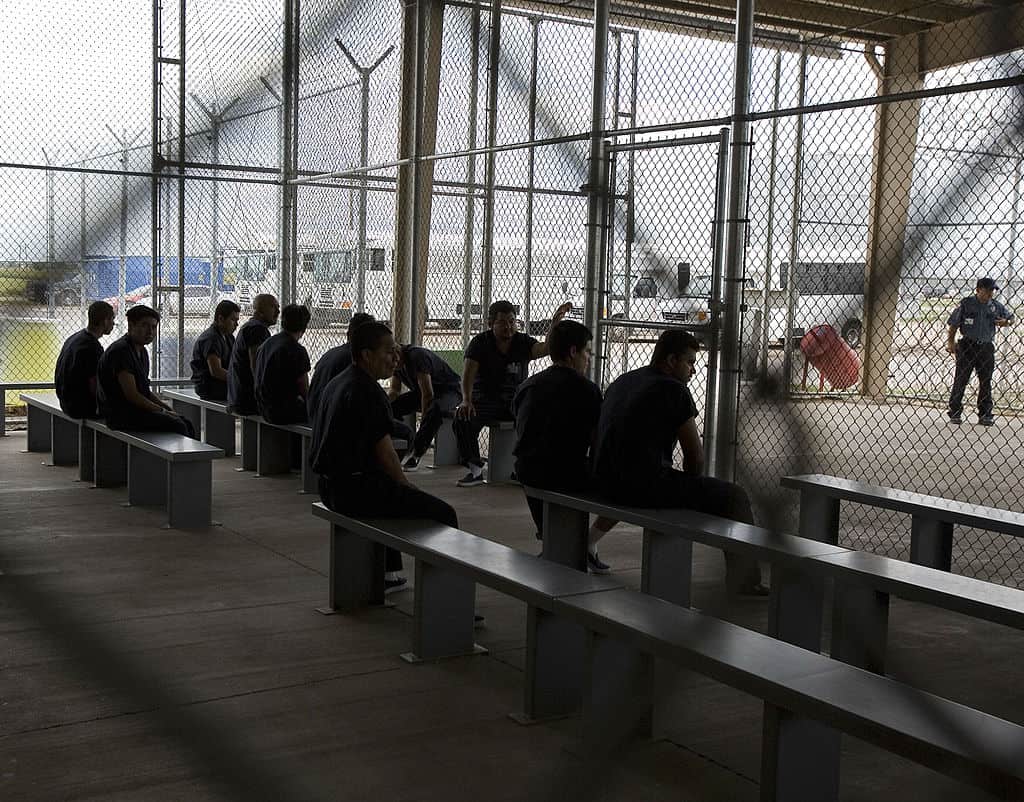Last month, the Department of Homeland Security announced plans to end the contracts for two immigration detention centers in Georgia and Massachusetts after allegations of abuse. While this is welcome news, it must be just the beginning of the administration’s campaign to close detention centers.
Texas is home to more immigrant detention centers than any other state, part of an irreparably flawed system. For years, people in detention and advocates have sounded the alarm about abuse and negligence, and have called the closure of Texas immigration jails.
Last month, Detention Watch Network released a new report calling on the Biden administration and Congress to release people from detention, close detention centers, and create a fund to reinvest money in communities transitioning away from detention economies.
Our research found that in many ways ICE is an outlier. Over the last decade, state and federal prison populations have declined by more than 10 percent and more than 15 percent respectively. The decline in juvenile detention is even more stark — dropping by more than half between 1999 and 2015. In some places, communities have repurposed closed prisons into non-punitive institutions including a movie studio, reentry and homeless centers, and even a distillery.
But ICE’s detention population has grown astronomically. Between 2003 and 2019, the average number of people detained by ICE grew by 137 percent. During the Trump presidency, ICE opened 40 new immigration detention centers. Spending on detention also sky-rocketed to nearly $3.2 billion in 2020, 3.5 times what it was in 2005.
One of the driving factors behind this growth is profit. The vast majority of ICE detention centers are operated through contracts with private and public entities. By 2020, 81 percent of immigrants in detention were held in for-profit prisons. Industry giants CoreCivic and GEO Group together bring in more than $1.2 billion annually from ICE contracts.
While private prison executives get rich, the outlook is far less clear for detention communities. Studies show prisons do not foster long-term economic growth, especially in persistently poor communities. In fact, prison construction correlates with lower increases in employment, retail sales, household wages, and home values compared to towns without prisons.
Still, local officials say their communities need to identify alternative forms of development should detention centers close. Frio County Commissioner Jose Asuncion told us that private prison corporations operating ICE detention centers in his county — including the family detention center in Dilley — take advantage of communities without delivering promised benefits. Still, if the detention centers in his community are going to close, communities will need help paying their bills while they develop a plan for post-detention economic futures.
When President Biden took office in January, just under 15,000 people were in immigration detention, a low not seen in decades. However, in the last few weeks, this number has jumped by more than 50 percent. And last week, President Biden released a budget request funding 32,500 ICE detention beds. The administration must reverse this troubling trend and urgently release detained people, while placing a moratorium on detaining people anew.
As lawmakers begin to look towards next year’s budget, Congress should reduce immigration detention funding by 75 percent and set up a multi-year, $1 billion Just Transition Economic Development Fund to provide grants to communities transitioning away from detention economies.
We need a plan to end immigration detention in the United States. The Biden administration has a generational opportunity to create something new. The time is now.
Bob Libal is an Austin-based immigration and criminal legal reform advocate and author of Communities Not Cages: A Just Transition from Immigration Detention Economies. Setareh Ghandehari is the Advocacy Director of Detention Watch Network in Washington, D.C.
Photo: PAUL J. RICHARDS/AFP via Getty Images




